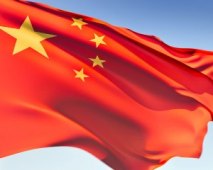 Brushing aside the US demand to allow faster appreciation of the yuan, Chinese Premier Wen Jiabao said on Monday China will stick to its policy of gradual increase while charting out a new growth path to boost domestic consumption and reduce dependence on exports.
Brushing aside the US demand to allow faster appreciation of the yuan, Chinese Premier Wen Jiabao said on Monday China will stick to its policy of gradual increase while charting out a new growth path to boost domestic consumption and reduce dependence on exports.
"The appreciation of the RMB (renminbi or yuan) must be gradual, because it affects jobs and raises pressure on enterprises and employment and we must maintain the overall social stability," Wen said at his annual media conference in Beijing on Monday.
"We will continue to stick to the reform of the formation mechanism of the RMB exchange rate," he said, adding that the Chinese currency has appreciated by 57.9 per cent since 1994.
"Our reforms have aimed to adopt a market-based, managed floating exchange rate regime, which is tied to a basket of foreign currencies, instead of pegging to the dollar," Wen said.
He defended his government's decision to lower China's GDP target to 7 per cent for the next five years, scaling it down from the present double-digit growth rate.
China plans to achieve a high quality and efficient annual growth rate of 7 per cent during the 12th Five-Year Plan, starting this year, which is not easy by any means, Wen said.
Given China's increasingly large economic aggregate and the need to raise the quality and efficiency of its growth, 'a 7 per cent growth rate is not a low target,' Wen said, asserting that a shift from an export-dependent economy to a domestic consumption-driven one will not be easy.
According to the new five-year programme adopted by the top legislature, the National Peoples Congress, China has lowered its annual economic growth target to 7 per cent for the 2011-2015 period from the target of 7.5 per cent for the previous five years.
This is despite the fact that it achieved over 11 per cent expansion during past five years. As for tackling inflation, Wen said, "The government has confidence to anchor inflation expectations."
He said his government has taken three-fold measures to rein in inflation, including efforts to boost production, especially agricultural produce supply, strengthen distribution systems and manage the market with economic and legal means.
Wen said China's inflation rate, which is under 5
The current inflation is in part a global issue, he said.
Some countries have pursued a quantitative easing monetary policy, which has caused the fluctuations in exchange rates of major currencies and global commodity prices, Wen added.
"International grain prices rose 15 per cent in the past few months. Oil price jumped to over $100 per barrel due to the volatile situation in western Asia and northern Africa," Wen said.
The structural inflation is due to rising labour costs and primary goods prices in China, Wen said.
To boost agricultural production, the government would continue to raise the minimum purchase prices for farm products this year to bridge the yawning rural-urban income gap, Wen said.
The minimum purchase prices for farm produce were raised 20 per cent to 40 per cent in the past few years, he said, adding that that the government will further increase the purchase prices by a big margin this year, without giving a specific number.
According to official figures, the per capita net income for rural residents reached 5,919 yuan ($902) in 2010, a year-on-year increase of over 10 per cent.
The growth rate has surpassed that of urban dwellers.
Wen said the global financial crisis exerted a huge impact on China and the country took a series of stimulus measures to ensure long-term economic growth.
"It's with very hard efforts we managed to make the Chinese economy one of the first in the world to achieve a recovery and rebound and avoid series of setbacks in China's economic development," he said.
Wen recalled the difficult situation between the end of 2008 and first half of 2009 that prompted his government to come out $570 billion stimulus package.
That was when international trade plummeted and China's GDP fell sharply.
"Many businesses had to close and a large number of migrant workers had to go back home," he said.
"All these stimulus measures were designed to not only address immediate problems... (but) also ensure China's long-term development," he said.









 © 2025
© 2025